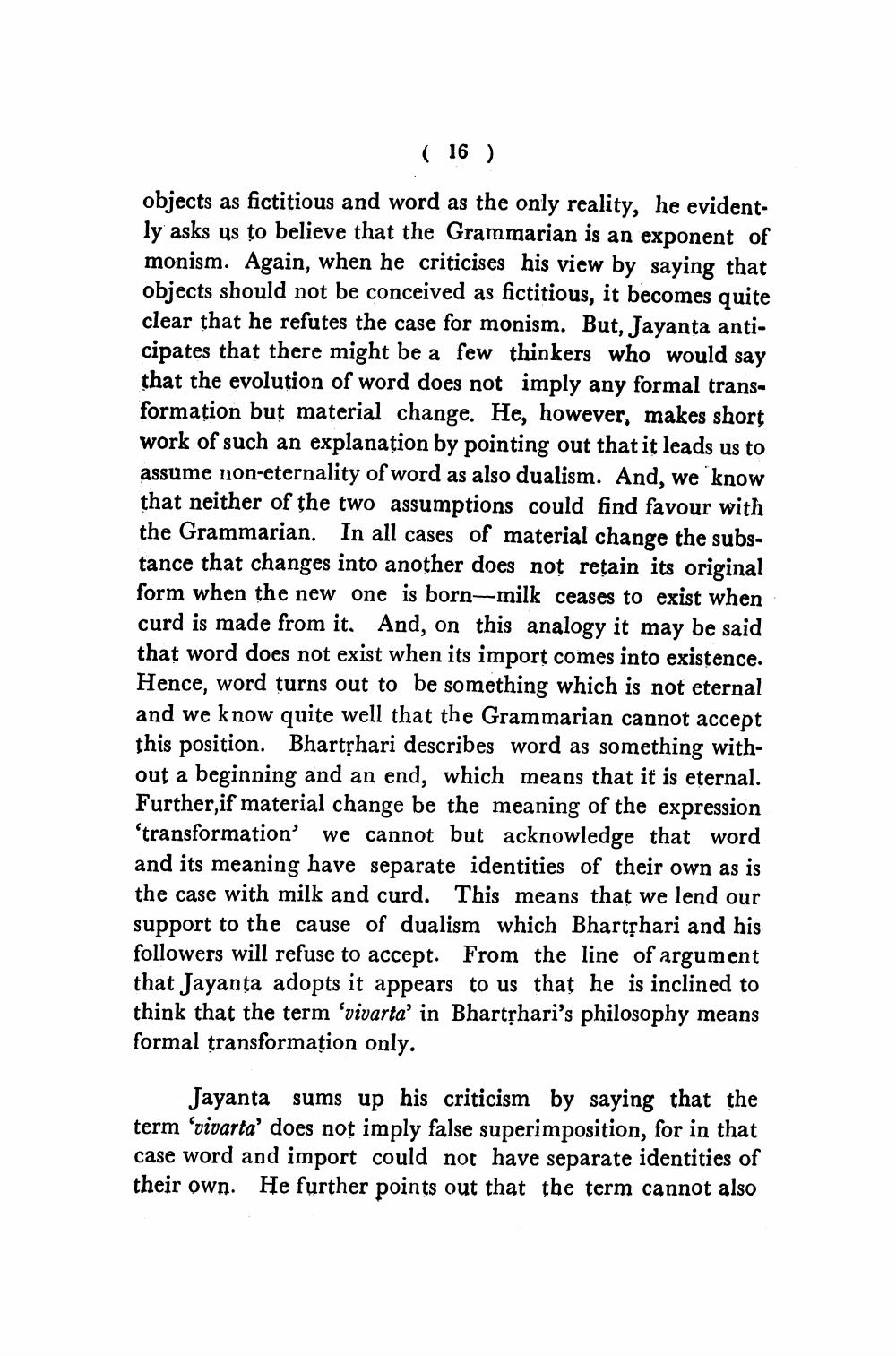________________
( 16 )
objects as fictitious and word as the only reality, he evidently asks us to believe that the Grammarian is an exponent of monism. Again, when he criticises his view by saying that objects should not be conceived as fictitious, it becomes quite clear that he refutes the case for monism. But, Jayanta anticipates that there might be a few thinkers who would say that the evolution of word does not imply any formal transformation but material change. He, however, makes short work of such an explanation by pointing out that it leads us to assume non-eternality of word as also dualism. And, we know that neither of the two assumptions could find favour with the Grammarian. In all cases of material change the substance that changes into another does not retain its original form when the new one is born-milk ceases to exist when curd is made from it. And, on this analogy it may be said that word does not exist when its import comes into existence. Hence, word turns out to be something which is not eternal and we know quite well that the Grammarian cannot accept this position. Bhartṛhari describes word as something without a beginning and an end, which means that it is eternal. Further,if material change be the meaning of the expression 'transformation' we cannot but acknowledge that word and its meaning have separate identities of their own as is the case with milk and curd. This means that we lend our support to the cause of dualism which Bhartṛhari and his followers will refuse to accept. From the line of argument that Jayanta adopts it appears to us that he is inclined to think that the term 'vivarta' in Bhartṛhari's philosophy means formal transformation only.
Jayanta sums up his criticism by saying that the term 'vivarta' does not imply false superimposition, for in that case word and import could not have separate identities of their own. He further points out that the term cannot also




